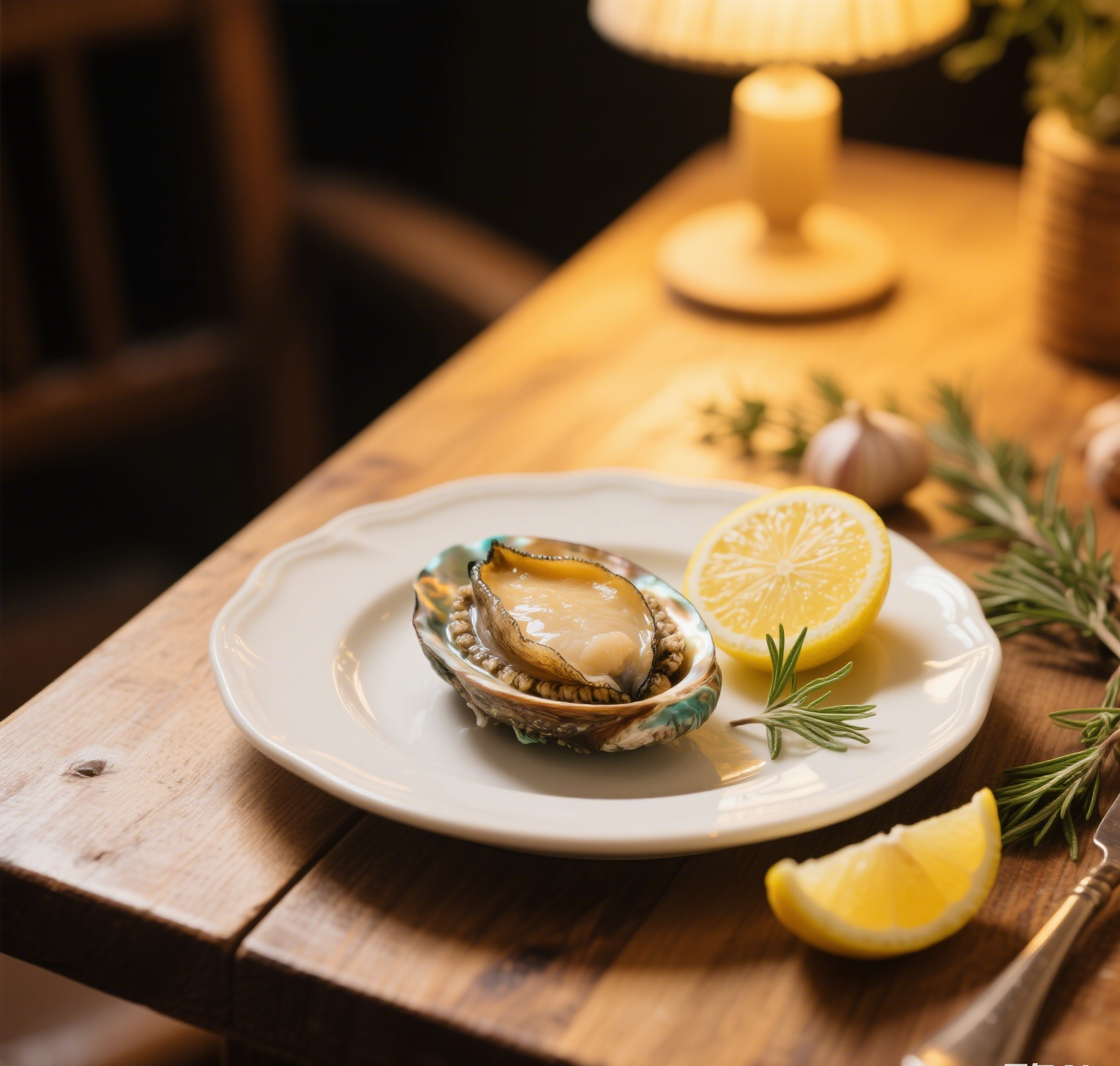Is It OK to Eat Abalone? (Spoiler: Yes, But Let’s Talk About It)
Let’s cut to the chase: abalone is the ocean’s answer to edible jewelry. This iridescent sea snail has been a luxury ingredient for centuries, worshipped by emperors, Instagrammed by foodies, and priced like a rare gemstone. But is it ethical to eat? Is it healthy? And why does it cost more than your Wi-Fi bill? Grab your snorkel (or credit card), and let’s dive into the world of abalone—no mermaid tail required.

1. Abalone 101: The Ocean’s Underwater Snack
Abalone isn’t just a fancy seafood—it’s a marine mollusk with a fan club that includes ancient Romans, Japanese royalty, and Gordon Ramsay. Here’s the lowdown:
- What’s in a name? Called “ormer” in the UK, “awabi” in Japan, and “the reason your wallet is crying” everywhere else.
- Flavor profile: Imagine a cross between scallops and filet mignon, with a hint of oceanic umami. It’s subtle, buttery, and definitely not “fishy.”
- Texture: Tender yet slightly chewy when cooked right. Overdo it, and you’ll be gnawing on a rubber eraser.
Golden nugget: Abalone is the Beyoncé of shellfish—expensive, glamorous, and worth the hype (if you can afford it).
2. Health Benefits: Is Abalone a Superfood or Just Super Expensive?
Turns out, abalone isn’t just a flex for your dinner party. It’s packed with nutrients that’ll make your inner nutritionist swoon:
- Protein powerhouse: A 3-ounce serving delivers 17 grams of protein—more than an egg. Perfect for flexitarians who want muscles and morals.
- Omega-3s: These heart-healthy fats reduce inflammation and make your cardiologist smile.
- Iron & B12: Abalone fights anemia better than a spinach smoothie. Plus, B12 keeps your nerves sharper than a sushi chef’s knife.
- Low in fat: At just 2 grams per serving, it’s seafood’s answer to “guilt-free decadence.”
But wait! Abalone is high in cholesterol (85mg per serving). If your doctor’s side-eyeing your seafood habit, moderation is key.
3. The Elephant in the Room: Is Abalone Ethical?
Abalone’s popularity has led to overfishing, habitat destruction, and a black market wilder than a pirate movie. Here’s how to eat it without angering Poseidon:
- Wild vs. farmed: Wild abalone populations are struggling (thanks to poaching and climate change). Opt for sustainable farmed abalone—it’s eco-friendly and tastes just as good.
- Certifications: Look for labels like MSC Certified or Aquaculture Stewardship Council. Think of it as a “good karma” stamp.
- DIY foraging? Unless you’re a licensed diver with a death wish, leave wild abalone hunting to the pros. (Seriously, it’s illegal in many places.)
Golden nugget: Eating abalone responsibly is like adopting a pet tiger—thrilling, but only if you do it right.
4. How to Cook Abalone Without Ruining Your Life Savings
Abalone is notoriously tricky to cook. Mess up, and you’ve wasted $200 on seafood jerky. Follow these chef-approved hacks:
- Tenderize it: Pound the meat with a mallet (or a rolling pin in a pinch). Pretend it’s your boss’s face if that helps.
- Keep it quick: Sear slices for 30 seconds per side. Abalone cooks faster than a TikTok trend.
- Go raw: Slice it paper-thin for sashimi. Drizzle with ponzu and pretend you’re in a Tokyo Michelin restaurant.
- Brave the grill: Baste with garlic butter and char lightly. Warning: Your neighbors will smell it and invite themselves over.
Pro tip: Canned abalone is cheaper and pre-tenderized. It’s the training wheels of abalone cuisine.
5. Abalone Myths Debunked (No, It Doesn’t Cure Baldness)
- Myth 1: “Abalone aphrodisiac powers!”
Reality: It’s nutrient-dense, but save the oysters for date night.
- Myth 2: “The shell’s mother-of-pearl cures arthritis!”
Reality: It makes gorgeous jewelry, though. Prioritize your accessories budget accordingly.
- Myth 3: “Eating abalone makes you fancy.”
Reality: Only if you pair it with a monocle and a British accent.
6. When to Say “No” to Abalone
Abalone isn’t for everyone. Skip it if:
- You’re allergic to shellfish (obviously).
- You’re vegan (unless you’re into cosplaying as a sea monarch).
- You’re on a budget (ramen won’t judge you).
Conclusion: So, Is It OK to Eat Abalone?
In short: Yes—if you do it thoughtfully. Sustainable abalone is a nutrient-packed delicacy that’s ethical, delicious, and Instagram-worthy. Just respect the ocean, your wallet, and the fact that not every meal needs to be a luxury experience.
Final thought: Abalone proves that the ocean’s greatest treasures aren’t buried in shipwrecks—they’re on your plate. 🐚✨
